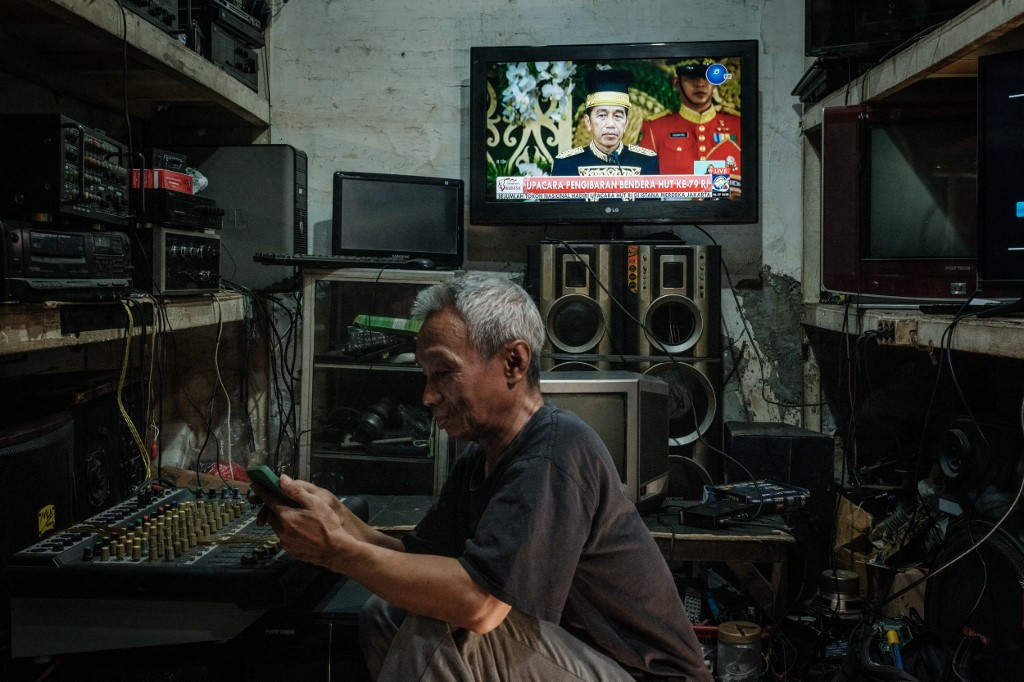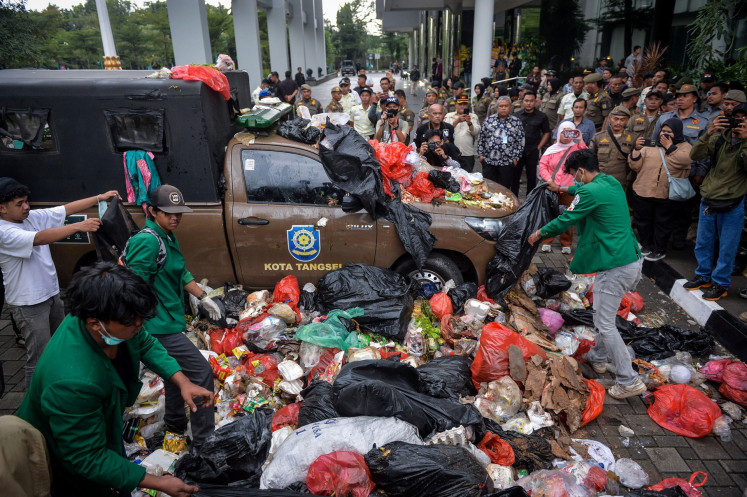Popular Reads
Top Results
Can't find what you're looking for?
View all search resultsPopular Reads
Top Results
Can't find what you're looking for?
View all search resultsProtect the press
As if the decline in press freedom in Indonesia were not already difficult enough for journalists, now they also have to deal with a more fundamental, if not existential question, on whether practicing journalism is a sustainable livelihood.
Change text size
Gift Premium Articles
to Anyone
These are indeed trying times for everyone working in the media industry.
As if the decline in press freedom in Indonesia were not already difficult enough for journalists, now they also have to deal with a more fundamental, if not existential question, on whether practicing journalism is a sustainable livelihood.
For journalists working in the field today, the most basic question for them is whether the media company they work for can continue keeping them on the payroll with revenues from subscriptions and advertising drying up.
For media companies themselves, the job in the past few months has been even more difficult. Not only because advertising revenue is now down to a trickle, but because the budget cut enacted by President Prabowo Subianto has adversely impacted their bottom lines.
It's no longer a secret that as advertising spending from private sectors has shifted to social media, mainstream media companies still rely on government spending on public relations to stay afloat.
In the past few months, that lifeline has no longer been available and media companies, including even some of the biggest names in Indonesia's media industry, have no option but to make the difficult decision of laying off their journalists.
And while things have stabilized for print and online media brands, following waves of downsizing and efficiency attempts five years ago, the situation is now dire for the broadcasting industry.
Almost all major broadcasters from Kompas TV and iNews to the state-run broadcaster RRI in recent months have resorted to downsizing their workforce.
The optimism that the television industry could weather the technological disruption has now evaporated and with broadcasters' infrastructure now being dismantled, it is difficult to imagine that the industry could recover from the current setback.
The mass migration of audiences toward streaming as a means for accessing their news and entertainment has been a nail in the coffin for traditional, terrestrial broadcasters.
After all, who can blame these audience for migrating? Streaming on YouTube or Netflix offers convenience and a variety of choices that the audience can enjoy for a paltry sum, or, if you can deal with those intrusive ads, these products are free.
Likewise, if readers can get information more quickly, more briefly and tailored to their needs from platforms like Google or ChatGPT, why bother paying for subscriptions for news and opinions from legacy media outlets?
But therein lies the problem.
All these tech companies are world-class giants that are unencumbered by rules and regulations, whose sole modus operandi, to quote a certain tech titan is to "move fast and break things".
In fact, what media companies do is exactly the opposite and this is simply because there are rules and regulations guiding journalism.
For every journalist writing a story on alleged government corruption, there are the Journalism Code of Ethics and the 1999 Press Law that will guide their work, and a violation of the principles enshrined in the rules would result in a Press Council guilty verdict. For broadcasters, the rules and regulations are more complex, ranging from the Broadcasting Law to the Electronic Information and Transaction (ITE) Law which carries a maximum penalty of license suspension and fines up to thousands of dollars.
To assume that traditional media companies exist on a level playing field with global tech platforms is, at best, wrong headed.
The only reason these global tech companies are able to siphon off almost 80 percent of advertising revenue is because they control sophisticated tools that are not available for traditional media companies, for whom journalism is their primary job.
And because of that technological superiority, traditional media companies are now in jeopardy.
The government can do something to stem the losses. If there is one affirmative action it can take, it is to level the playing field.











